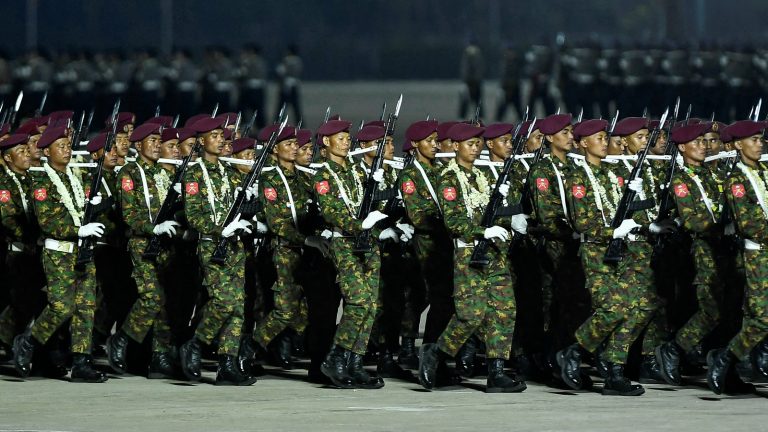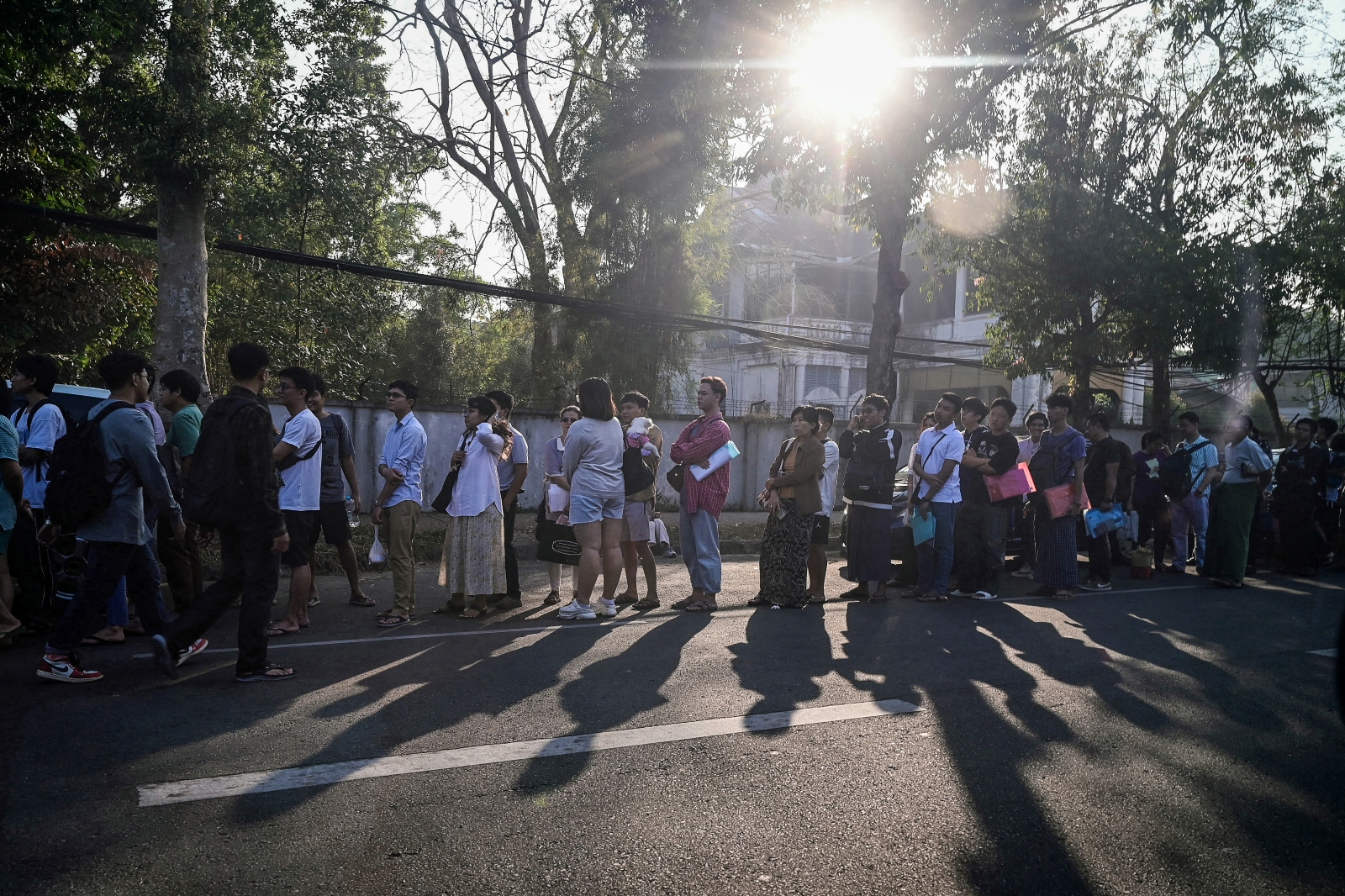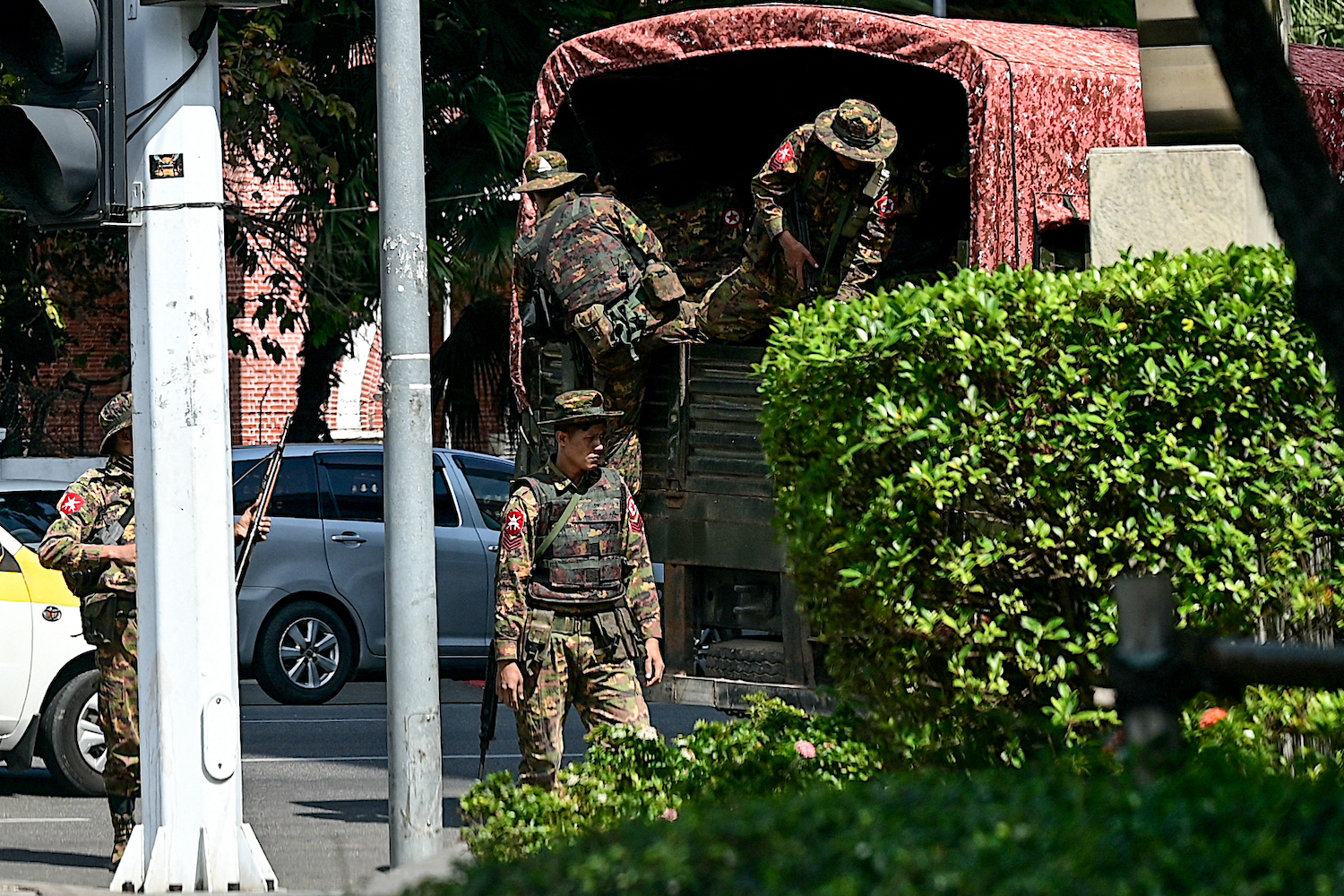Red lights flashed at any mention of fear under junta rule during the 2010 campaign.
After nearly 50 years of dictatorial rule, fear was pervasive among the ordinary citizens of Myanmar in 2010.
No mention of it was tolerated by the censors. References to fear among the people were cut from two election reports in the Myanmar Times edition for the week beginning November 5, 2010.
One of the reports was about the National Democratic Force stepping up its campaign in Yangon constituencies in a bid to win over undecided voters.
It quoted the NDF’s Pyithu Hluttaw candidate for Bahan, U Aung Myat Tun, as stressing the importance of participating in the election.
“I want to show the next generation that we can still be brave,” he said.
Support more independent journalism like this. Sign up to be a Frontier member.
The red pen came out when he added: “In our country, we have spent the past living in fear. In the future, after the election, I believe the public will learn not to be afraid any more. We have lived with this government for more than 20 years and I don’t want my children to share our experience.”
A comment about fear was also cut from a report about candidates from most political parties having difficulty recruiting volunteers for polling station duty on election day.
The report explained that election laws permitted candidates to appoint a polling booth agent and an assistant agent at each polling booth in their constituency. Many constituencies had more than 100 polling booths and candidates said they were struggling to appoint even one person at each location.
Daw Than Than Nu, the general secretary of the Democratic Party (Myanmar), who was contesting Amyotha Hluttaw Constituency 2 in Mandalay Region, said that with two weeks to the vote, she had been able to recruit only eight agents for the electorate’s 138 polling stations. The red pen came out when she gave a reason. “The rest are too afraid,” said the daughter of U Nu, Myanmar’s first post-independence prime minister.
A change was ordered to the heading on the front page lead story referring to a pledge given at a Yangon news conference by Union Solidarity and Development Party general secretary U Htay Oo, the junta’s Minister for Agriculture and Irrigation.
‘We will never seize power again’, the heading quoted U Htay Oo as saying. Curiously, no change was ordered to the introduction to the story on which the heading was based.
(For the record, this is what the intro said, with the second sentence included for your interest: “The military will never again seize power from a democratically elected government, a senior Union Solidarity and Development Party official pledged at a press conference. General Secretary U Htay Oo said in Yangon on October 27 the military would not take any action even if the USDP, which has been formed by retired military officials, fails to win a majority at the general election.”)
The replacement heading accepted by the censors said, ‘We want to work with the NLD, says USDP’.
It referred to his comment that the USDP would cooperate with any party or person that “prioritises the national interest”, including Daw Aung San Suu Kyi. Immediately preceding her name were the words “detained opposition leader”. They got the red pen treatment.
The three-and-a-half-hour news conference was the first by the USDP since the start of the 2010 election campaign.
Rejected for publication was a report about an informal survey by the National Democratic Force of 8,000 voters in Yangon’s Kamaryut Township.
“About 20 percent said they will not vote, about 30pc will vote and 10pc are still deciding,” said U Kyaw Min Hlaing, the NDF’s Pyithu Hluttaw candidate in Kamaryut. “The remaining 40pc told us they didn’t know about the election, how to vote or who the candidates and parties are,” he said, adding that the findings showed more voter education was needed so people could make an informed decision when they cast a ballot.
The decision to reject another story may have been a reflection of Bamar chauvinism. It was about Shan being added to the languages supported on the WaitZar input program. It quoted the program’s creator, Seth Hetu, as saying it allowed users to use English-language keyboards to input texts such as Myanmar. Shan would be available in WaitZar’s next release, he said.






